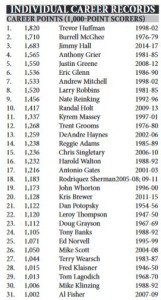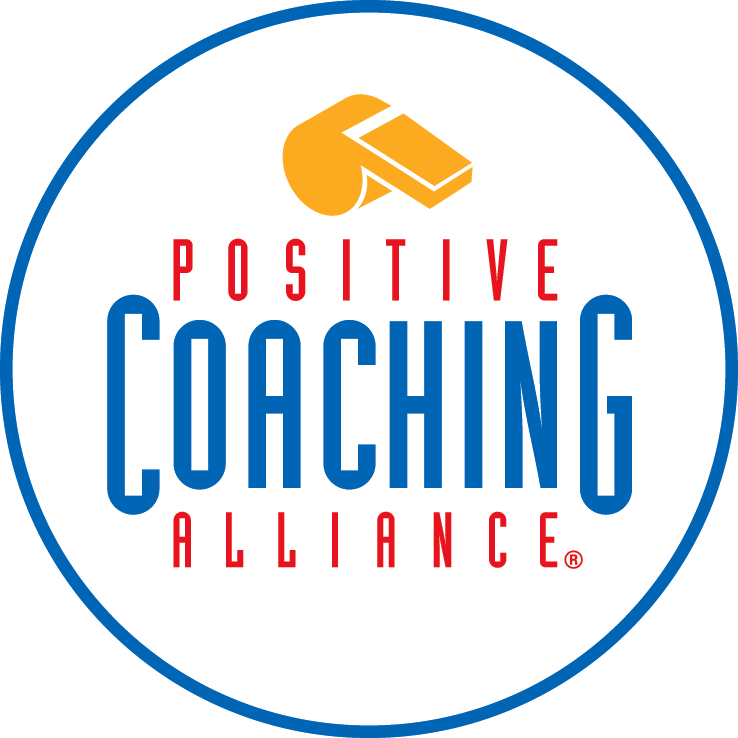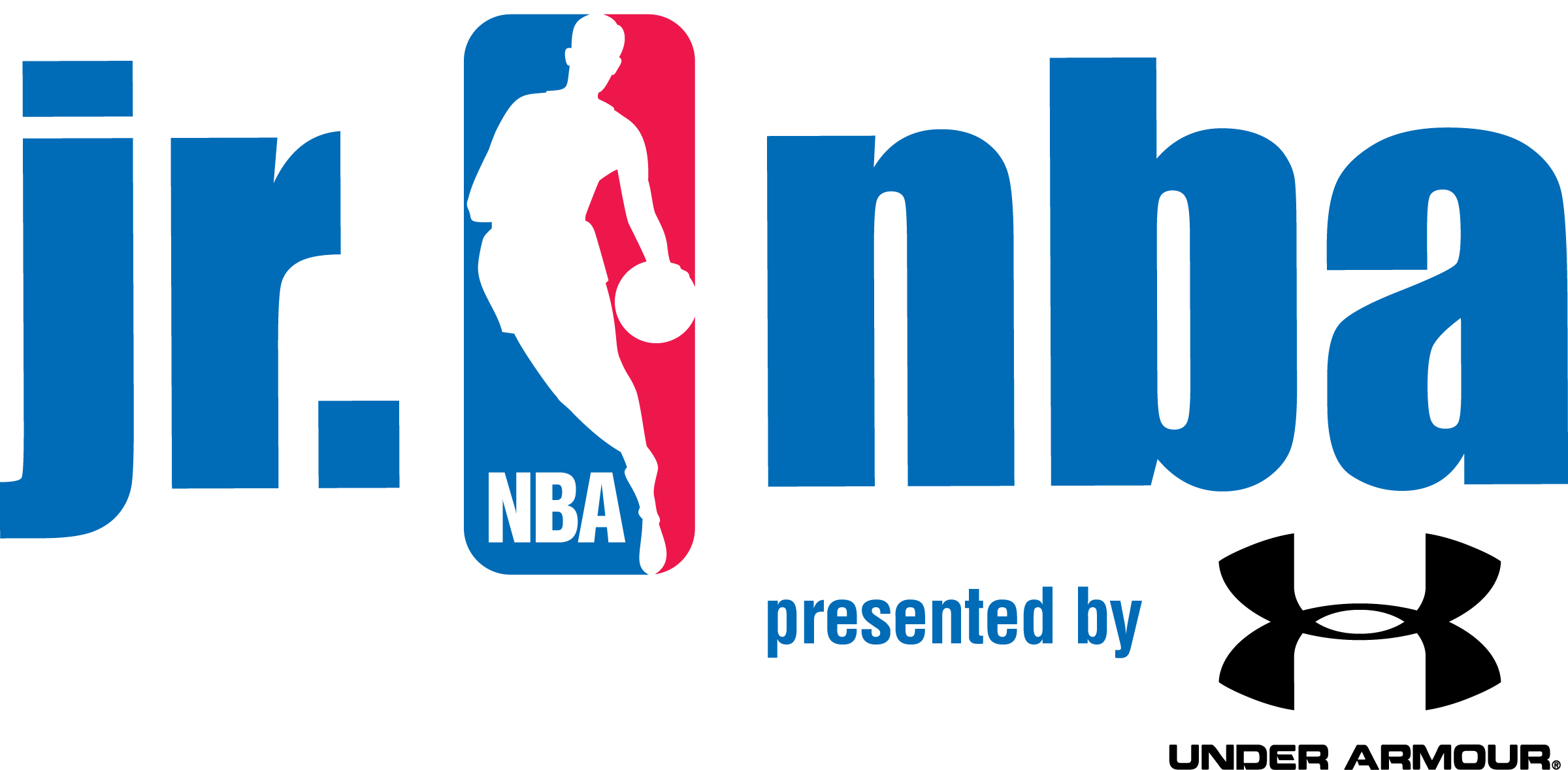
Basketball on the Edge – My Top Ten List of “Little Things” That Will Make You A Better Player (Plus a bonus reminder from a college coach)
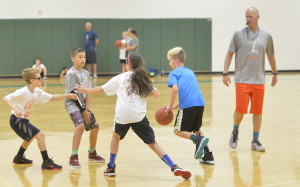
Basketball coaches all over the world preach to their players the importance of doing the “little things” that lead to winning. Here is a top 10 list of my favorite “little things” that set great players apart from average players.
1. Sprinting the floor in transition both ways
It doesn’t take talent to run hard, but very few players can do it all the time. You can score so many easy baskets or prevent them if you’ll discipline yourself not to be content jogging down the floor.
2. Taking charges
Giving up your body to take a charge can swing the momentum of a game quickly.
3. Passing and catching
The simple act of completing passes leads to leads to improved offensive performance. Don’t take it for granted as a player or a coach.
4. Waiting for screens
I could have listed setting screens here, but even when good screens are set the player receiving the screen must wait to use the screen effectively. It’s hard to be patient and wait, but if you do, you’ll be rewarded.
5. Focusing on footwork
Sure your skill with the ball is important and so is your basketball IQ, but after that, I would argue that great footwork come next.
6. Diving for loose balls
Some players do, some don’t. Which one are you?
7. Boxing out
You can get some rebounds against shorter, less athletic, inferior opponents without boxing out. On the other hand, if you DO box out, you can get more rebounds no matter who you’re playing against.
8. Making the extra pass
The player who makes the extra pass is a joy to play with. When you’re open and they have the ball it is soon on its way to you. Have a team with five players like that and magic happens! Conversely, one player that doesn’t make the extra pass can inject selfishness into all of their teammates without even realizing it.
9. Making free throws
If players only realized how many games are won and lost at the free throw line. Shoot 100 a day so your coach and teammates can count on you every time you step to the line. Read a more in-depth plan for improving your free throw shooting here.
10. Cutting hard
Most players jog on cuts, it’s a fact. Teams and player that cut hard are a nightmare to defend. Anyone can jog, it takes toughness to cut hard consistently.
BONUS – Being a great teammate and remembering that someone (your current coach, your next coach, your mom, a scout, a teammate) is always watching!
Read my blog post about what it takes to be a great teammate here.
A few final thoughts from Bob McKillop, head coach at Davidson College.
• “When I am recruiting a young man to play at Davidson, I look at what he does when he comes out of the game. Does he walk to the bench or run? Does he mope or high five his teammates?
• When he is in the game, does he want to take big shots? Does he dive on the floor for loose balls?
• How is his body language when being coached? Is he an eye roller? Is he a shoulder shrugger?”
Are these “little things”? Yes. Do they make a big difference? Absolutley!
Start doing the “little things” and become the type of player you wouldn’t want to play against.
Click here to register for one of our upcoming programs!
Sign up now to get a “Head Start” on your competition with our free basketball tip of the day delivered straight to your inbox. Click below, enter your email and we’ll also send you our E-Book, “Mental Toughness, Improve Your Brain – Improve Your Game”.
Basketball on the Edge – 7 Quick Lessons I’ve Learned About Overcoming Challenges
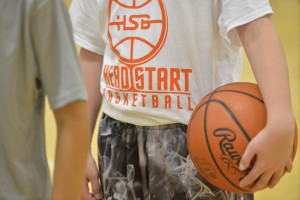
There are times in every basketball player’s journey that practice becomes more of a grind than a joy, when improvement is a struggle, or when goals that were previously set seem out of reach. Here are some lessons I’ve learned on my journey as a player and a coach that can help you overcome these moments when you may feel like it’s not worth it anymore.
1. Fear is normal and everyone feels it. You may be afraid you won’t be a starter next year, or that you’ll get cut from the team, or that all of your hard work won’t pay off. The key to overcoming fear is understanding that fear will always be there. We can’t let fear take over and prevent us from doing what needs to be done. There is usually nothing on the other side of fear besides the goal we are trying to reach. Even if you fail, you’re still better off having tried than regretting the fact you didn’t give your goal everything you had.
2. Look at obstacles as challenges or opportunities rather than as problems. When a new player moves in and takes your spot, or you are having trouble mastering a particular skill, or your coach criticizes you, look for the chance to stretch and grow yourself as a player and as a person within that situation. It’s not always easy or fun to shift your mindset in this way, but by looking for “challenges” rather than “problems” you’ll start to view not just your game differently, but also your world. Optimism breeds success.
3. It’s ok to get mad or be upset when you face a challenge…if you channel your emotions into productive action that moves you forward. It’s fine to be upset after missing a free throw at the end of the game that contributed to your team’s loss…if you decide you’re going to shoot 25 free throws after every practice for the rest of the season. If all you do is throw your shoes at the wall after the game to show everyone how mad you are, but then you don’t take productive action, your emotions aren’t helping you. The best players use their emotions to drive them in practice, training, and games. They don’t cede control of a situation to their emotions because they know that limits their ability to grow from being challenged.
4. Find a coach, a teammate, a parent and ask questions. The greatest in any walk of life ask great questions. They are life-long learners. As Kevin Eastman says, “Don’t be a know-it-all, be a learn-it-all.” When you’re struggling with a challenge, reach out to others that may have more insight or a different perspective than you. They may suggest an alternative approach to learning the skill or dealing with the issue that you haven’t considered.
5. Find as many opportunities as possible to challenge yourself. You’ll be that much more prepared when game time rolls around. The greatest players want to be challenged. They don’t want to play against poor competition. They take no delight in beating up on lesser opponents. The greatest want to test themselves against the very best. The key here is not to shy away from challenges because you might not be successful. Improvement is on the other side, so rise up to meet any challenge you face knowing you’ll be better off in the long run.
6. Seek out opportunities to grow, learn, and develop as a player that push you to your limit. Sure, you’ll struggle sometimes, but in that struggle is where true learning takes place. Being right at the edge or just outside of your comfort zone maximizes your learning. You have to practice just a little bit faster than feels normal. Shorten your workout, but go harder. Work smarter, not longer.
7. You can become the player you want to be, but it’s not easy. It’s going to take a lot of time. The road will be filled with potholes, detours, and plenty of construction. Becoming the player you want to be is under your control, but it’s a messy process. Having the discipline, drive, and motivation to do what it takes every day challenges even the best players. You can do it, but you must embrace the process and be willing to fight through the inevitable challenges you’ll face along the way!
Click here to register for one of our upcoming programs!
Sign up now to get a “Head Start” on your competition with our free basketball tip of the day delivered straight to your inbox. Click below, enter your email and we’ll also send you our E-Book, “Mental Toughness, Improve Your Brain – Improve Your Game”.
Basketball on the Edge – Five Ways To Show Leadership On The Court by Dick DeVenzio
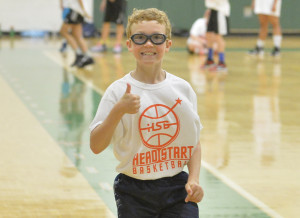
Looking for ways that you can become more of a leader on your team? In this article you’ll learn how to inspire your teammates and show them that you have only one focus: the team.
Click here to read the article by Dick DeVenzio
Click here to register for one of our upcoming programs!
Sign up now to get a “Head Start” on your competition with our free basketball tip of the day delivered straight to your inbox. Click below, enter your email and we’ll also send you our E-Book, “Mental Toughness, Improve Your Brain – Improve Your Game”.
Basketball on the Edge – The Argument of the Growing Heap and Who Your Competition Really is
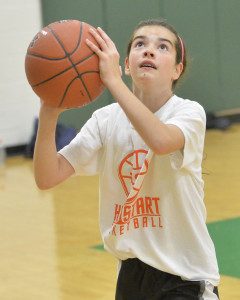
Who is your competition? It seems like an obvious question with a simple answer. The competition is a teammate I am trying to start ahead of. The competition is my opponent that I am playing against. The competition is another player that is being recruited to the school where I want to play. There is always more competition out there that is ever increasing as you move up the basketball ladder, (youth-middle school-high school-college-professional). And yet, there is really only one competition that truly matters…the competition with yourself.
I have written before about when I first heard this concept back in junior high in the mid-80’s. In the book, Stuff Good Players Should Know, Dick DeVenzio talks about the need for players to focus on beating “You Yesterday”. The idea being that you are competing with yourself. Can you improve and be just a little bit better today than you were yesterday?
Here’s another great analogy to help you understand this concept of competing with yourself. It’s called “The argument of the growing heap.” When we think about competing with ourselves, we’re really talking about building practice habits, grit, and determination. That’s what it takes to get better at basketball. The argument goes like this. Each individual day of improvement is like a single coin. It’s easy to skip one workout, eat poorly once, or not get enough sleep on a given night. That’s only one coin. We don’t really miss that nickel or dime if we lose it. However, if we keep putting those nickels and dimes together, eventually we end up with a “growing heap” of coins (all the workouts and time put together) that can add up to significant improvement. The challenge is that it’s easy to lose one coin (skip one day), but when you do, the heap (your level of improvement) doesn’t grow. We tend to underestimate how big that “growing heap” can get if we just keep adding single coins every day. Adding that daily coin is what beating “You Yesterday” is all about.
How can competing with yourself rather than others make you better, make your experience in sports more fun, and ultimately lead to more “success”?
You won’t be rooting for others to fail.
I’ll be honest. This is a tough one for me. As an athlete I sometimes had a hard time wanting others to do well. In my mind, the failure of others somehow made me look better. I didn’t always like to see others get the credit. Thankfully, I was smart enough to keep these thoughts inside my head and not let them out, but they were definitely there. Even today, a thought like that will creep into my subconscious mind as a coach watching other coaches or teams have success. I’m not perfect when it comes to only competing with myself and you probably won’t be either, but being aware of our natural tendencies makes it easier to overcome them. The best want to measure themselves against others too, but the reality is that the more you can focus on your own (or your team’s) improvement the more you’ll be able to enjoy the game and celebrate, rather than denigrate the achievements of others. That’s what great players and coaches do, we lift others up along with us!
The circumstances don’t matter.
Teammates might have a bad game, coaches might run the wrong plays, referees might blow some calls, the opponents might play dirty, but none of that matters if the focus is on beating yourself. If you focus on your own improvement it will be easier to block out the distractions that you can’t control anyway. A selfish teammate that shoots every time they get the ball won’t send you into a tailspin knowing that what they do doesn’t impact the way you approach the game. By striving to get better, NO MATTER WHAT THE CIRCUMSTANCES, you’ll be adding to your “growing heap” of improvement.
You won’t burnout.
The reality of focusing on beating the competition is that there will always be someone out there that is better than you. No matter how good you are there is always someone better. Even when you are the best player in the world (like LeBron) there is always someone (the Warriors) to challenge and sometimes defeat you. If scoreboard results or statistics are all that matters to you, too often you’ll end up unhappy, especially as a young athlete. You are much better off focusing on the day by day process of beating “You Yesterday” and adding to your “growing heap”. Statistics say most kids stop playing sports by age 13 because they are burned out. Keep the focus on your own improvement and don’t let it happen to you.
You always know where you stand.
No one knows better than you what you are up against when it comes to competing with yourself. You can set goals. You can record your results. You can measure your progress. When you shift the focus of your improvement inward to the things that you can control you’ll enjoy the basketball experience more and most likely achieve more “traditional” success on the scoreboard too.
Make a commitment to try and compete more with yourself and less with others. Don’t throw away today’s “coin” thinking it doesn’t matter. Instead look at the “growing heap” of basketball skills that you are building day in and day out as you attempt to beat “You-Yesterday”
Click here to register for one of our upcoming programs!
Sign up now to get a “Head Start” on your competition with our free basketball tip of the day delivered straight to your inbox. Click below, enter your email and we’ll also send you our E-Book, “Mental Toughness, Improve Your Brain – Improve Your Game”.
Basketball on the Edge – What 1,000 Means To Me And How I Turned Can’t Into Can!
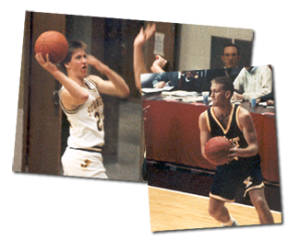
In the spring of my senior year in high school I went on a recruiting visit to Oglethorpe University in Atlanta, Georgia. Oglethorpe was an NAIA school that has a beautiful campus. As part of the visit I stayed overnight with several players in their dorm room, went to the old Omni Arena in downtown Atlanta to watch the NCAA tournament (saw Oklahoma and Louisville), and headed out on the town in Buckhead. It was a memorable visit, probably the most fun of any of my recruiting trips. But that’s not what I remember. An assistant coach at Oglethorpe said something to me that stuck with me through the rest of my recruiting process (if you can even call it that!) and my four years at Kent State. What he said was, “You don’t want to go to Kent State. They’ll bring you in and the next year they’ll recruit right over you. You’ll never get an opportunity to play. If you come here you’ll have a chance to be a thousand point scorer and have a great career.” At the time, I believed I was a Division One player. Guys that I played against in high school were signing letters of intent with schools like Missouri, Tulsa, Miami, Youngstown State, and Michigan. I knew I could play at the Division One level and the words of that coach fueled me to go to Kent State, have a great career, and try to prove that he was wrong.
I went into the final game of my career (I didn’t know it at the time because it was the first round of our conference tournament) at Cobo Arena in Detroit facing Western Michigan needing 11 points to get to 1,000. Unfortunately we lost the game but I got 17. Believe me when I tell you that the words of that coach were still ringing in my ears as the game ended. Despite the loss and the end of my college career, scoring 1,000 points as a Division One player is an accomplishment that still resonates with me 26 years later. The assistant coach at Oglethorpe provided me with a little extra fuel that I carried with me from the moment I heard his words.
At the time, there were many people that told me, “You can’t play Division One basketball. You’re not athletic enough, You’re not big enough. Other guys are better than you.” I looked for ways that I could turn can’t into can. This story from my past illustrates the first way YOU can do it.
1. Prove someone wrong.
The best love to be told they can’t do something and then go out and prove that they can. Use being told you can’t to prove that you can. Don’t let someone else set limits on what you can achieve.
2. And don’t set limits on yourself.
Couple your belief in what you can accomplish with an unrelenting work ethic and you’ll be able to achieve what initially may have seemed impossible.
3. Get used to feeling uncomfortable.
Playing against better players, taking on tougher competition, pushing yourself harder during workouts can be an uncomfortable feeling that isn’t always pleasant. The results you’ll get from being uncomfortable are where the satisfaction lies. You’ll know the “process” it took to get there while the outside world only sees only the end product.
4. Be who you are (or want to be).
Do you want to be the type of player (or person) that gives up easily or always says I can’t? I doubt it. Adopt the mindset of saying, “I can’t do it yet.” Instead of “I can’t.” The first statement indicates that you believe you can improve and get better (a growth mindset) whereas the second statement is a permanent belief about your ability (or lack thereof).
5. Find a role model.
Seek out someone who accomplished something that others said couldn’t be done. Ask them questions and learn from their journey. If you can’t find a real-life role model, pick up a book and read a biography of a person that overcame the odds to do something great. Don’t limit yourself just to reading about basketball players and coaches. People in all walks of life have turned can’t into can!
You can’t! – “They’ll recruit right over you Mike.”
You can!
